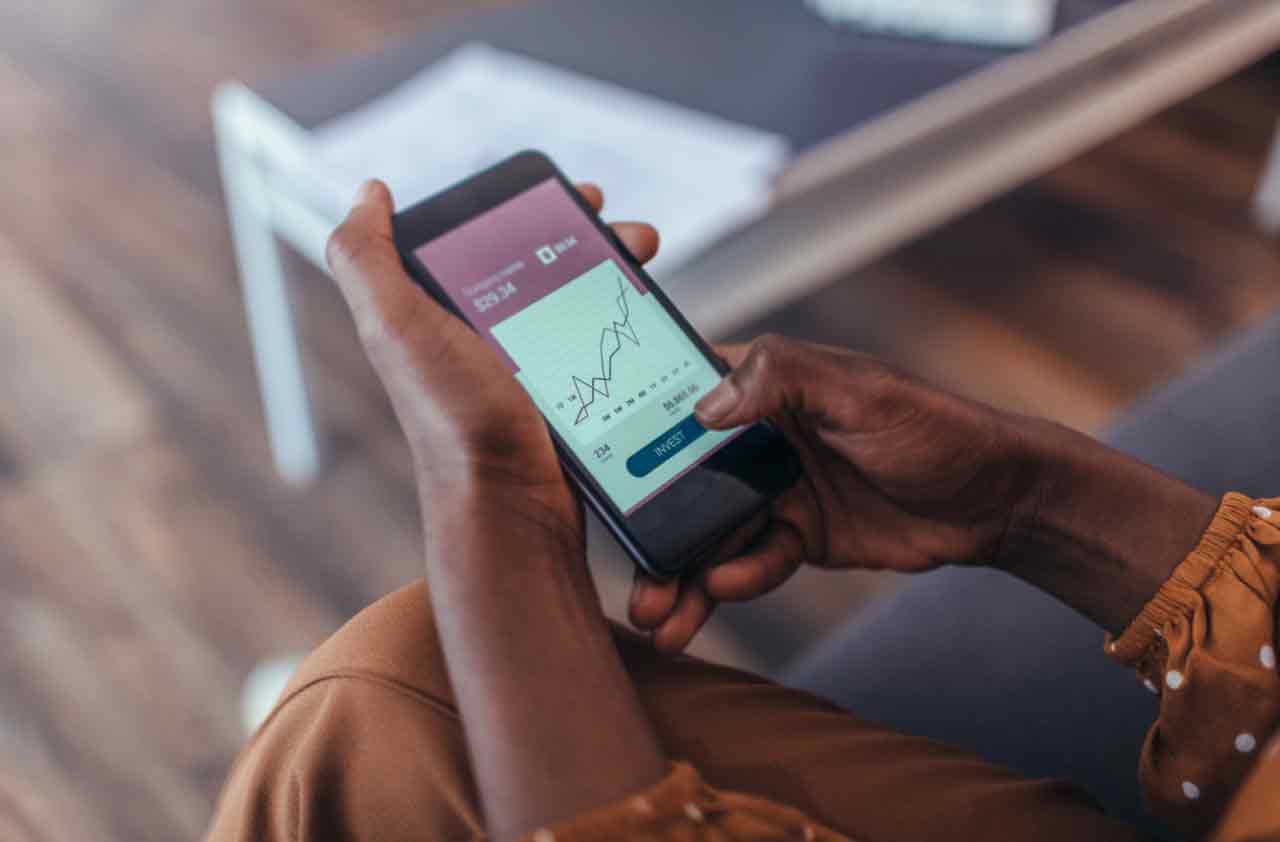The Pitfalls Behind Zero-Fee Trading
Commissions hit zero at big online brokers, but investors should be aware of other, sometimes hidden costs.


Profit and prosper with the best of Kiplinger's advice on investing, taxes, retirement, personal finance and much more. Delivered daily. Enter your email in the box and click Sign Me Up.
You are now subscribed
Your newsletter sign-up was successful
Want to add more newsletters?

Delivered daily
Kiplinger Today
Profit and prosper with the best of Kiplinger's advice on investing, taxes, retirement, personal finance and much more delivered daily. Smart money moves start here.

Sent five days a week
Kiplinger A Step Ahead
Get practical help to make better financial decisions in your everyday life, from spending to savings on top deals.

Delivered daily
Kiplinger Closing Bell
Get today's biggest financial and investing headlines delivered to your inbox every day the U.S. stock market is open.

Sent twice a week
Kiplinger Adviser Intel
Financial pros across the country share best practices and fresh tactics to preserve and grow your wealth.

Delivered weekly
Kiplinger Tax Tips
Trim your federal and state tax bills with practical tax-planning and tax-cutting strategies.

Sent twice a week
Kiplinger Retirement Tips
Your twice-a-week guide to planning and enjoying a financially secure and richly rewarding retirement

Sent bimonthly.
Kiplinger Adviser Angle
Insights for advisers, wealth managers and other financial professionals.

Sent twice a week
Kiplinger Investing Weekly
Your twice-a-week roundup of promising stocks, funds, companies and industries you should consider, ones you should avoid, and why.

Sent weekly for six weeks
Kiplinger Invest for Retirement
Your step-by-step six-part series on how to invest for retirement, from devising a successful strategy to exactly which investments to choose.
After a years-long race among online brokers to slash investor costs to the minimum, in the end it only took a few days for a handful of major firms to cross the proverbial finish line. In October, Charles Schwab announced it would eliminate its $4.95 commission on all online stock, exchange-traded fund and options trades. Within a week, several big-name online brokers rolled out similar commission-free deals, including Ally Invest, E*Trade, Fidelity, TD Ameritrade and TradeStation. Some trading fees still apply: Options traders at these firms must still pay contract fees, for instance. But those have been lowered in some cases, too.
Schwab isn't the first firm to offer free trading. Interactive Brokers launched IBKR Lite, a new online platform with free stock and ETF trades, just days before Schwab cut its commissions. And even before that, Firstrade, Robinhood and TradeZero America all offered free stock and ETF trading to customers.
A win for investors—mostly. Overall, the commission-free trend is a win for individual investors, especially those with small accounts for whom trading fees make up a larger percentage of their overall costs. But investors should resist the urge to get trigger-happy. Even with commissions at zero, "the behavioral costs"of investing aren't going to go away, says Charles Rotblut, vice president of the American Association of Individual Investors, a nonprofit investor education group. Investors who use free trades as an excuse to make frequent, emotional trades will likely erode their long-term returns, he says.
From just $107.88 $24.99 for Kiplinger Personal Finance
Become a smarter, better informed investor. Subscribe from just $107.88 $24.99, plus get up to 4 Special Issues

Sign up for Kiplinger’s Free Newsletters
Profit and prosper with the best of expert advice on investing, taxes, retirement, personal finance and more - straight to your e-mail.
Profit and prosper with the best of expert advice - straight to your e-mail.
Be wary, too, of other ways that brokerage firms may try to get money from you. Brokerages hope the move to zero commissions will allow them to attract and retain more customers and charge them for other services, such as banking, asset management, advisory services and estate planning, says Rotblut. In many cases, the service may be a good fit. Just be watchful of the fees, what you're getting in exchange for them and how they compare with what other firms charge.
Brokers will continue to charge you in ways you can't see, too. One such way is through your cash. Every brokerage firm moves your uninvested cash into low-yielding accounts called sweep accounts, the default for investor cash balances. The brokerage firms plunk those balances in short-term investments and pay clients far less interest than the firms earn on the money. Ask your broker about the yield on your default sweep account; you may be able to choose a higher-yielding account. Fidelity’s zero-commission rollout included an announcement that the firm will automatically direct investor cash into its highest-yielding sweep accounts.
There’s also a potential cost to you with market makers—the businesses (dealers or securities exchanges) that actually execute your trades. Many brokerages accept payments for routing trade orders through certain market makers. Generally, when a broker accepts payment for order flow from a third party, it’s thought to cost you on your execution price, whether you’re buying or selling shares. A number of brokerages, such as Robinhood and TD Ameritrade, do this, and the practice could increase as brokers look for ways to fill the gap left by departing commission revenues. Notably, Fidelity says it does not accept payment for order flow.
The zero-commission news wasn’t a win for the brokers’ shareholders, at least initially. Schwab shares fell 10% on the day the firm announced its zero-commission policy, E*Trade stock sank 16%, and TD Ameritrade tumbled 26%. Credit Suisse analysts say firms such as Schwab that offer more-robust services are best equipped to withstand the commission cut. But firms that logged a chunk of total revenue in commissions, such as E*Trade and TD Ameritrade, could see significant hits to earnings.
Profit and prosper with the best of Kiplinger's advice on investing, taxes, retirement, personal finance and much more. Delivered daily. Enter your email in the box and click Sign Me Up.

Ryan joined Kiplinger in the fall of 2013. He wrote and fact-checked stories that appeared in Kiplinger's Personal Finance magazine and on Kiplinger.com. He previously interned for the CBS Evening News investigative team and worked as a copy editor and features columnist at the GW Hatchet. He holds a BA in English and creative writing from George Washington University.
-
 Nasdaq Leads a Rocky Risk-On Rally: Stock Market Today
Nasdaq Leads a Rocky Risk-On Rally: Stock Market TodayAnother worrying bout of late-session weakness couldn't take down the main equity indexes on Wednesday.
-
 Quiz: Do You Know How to Avoid the "Medigap Trap?"
Quiz: Do You Know How to Avoid the "Medigap Trap?"Quiz Test your basic knowledge of the "Medigap Trap" in our quick quiz.
-
 5 Top Tax-Efficient Mutual Funds for Smarter Investing
5 Top Tax-Efficient Mutual Funds for Smarter InvestingMutual funds are many things, but "tax-friendly" usually isn't one of them. These are the exceptions.
-
 Best Mutual Funds to Invest In for 2026
Best Mutual Funds to Invest In for 2026The best mutual funds will capitalize on new trends expected to emerge in the new year, all while offering low costs and solid management.
-
 Best 401(k) Investments: Where to Invest
Best 401(k) Investments: Where to InvestKnowing where to find the best 401(k) investments to put your money can be difficult. Here, we rank 10 of the largest retirement funds.
-
 Fidelity Strategic Income Fund Excels In Hard Year for Bonds
Fidelity Strategic Income Fund Excels In Hard Year for BondsThe fixed-income market was volatile in 2023, but this Fidelity bond fund outperformed its peers thanks to strategic moves by management.
-
 What Is Margin Trading?
What Is Margin Trading?Margin trading is buying and selling stocks with borrowed money. It can generate big rewards, but margin trading also involves multiple risks.
-
 How to Find the Best 401(k) Investments
How to Find the Best 401(k) InvestmentsMany folks are likely wondering how to find the best 401(k) investments after signing up for their company's retirement plan. Here's where to get started.
-
 How to Master Index Investing
How to Master Index InvestingIndex investing allows market participants the ability to build their ideal portfolios using baskets of stocks and bonds. Here's how it works.
-
 Best Banks for High-Net-Worth Clients
Best Banks for High-Net-Worth Clientswealth management These banks welcome customers who keep high balances in deposit and investment accounts, showering them with fee breaks and access to financial-planning services.
-
 Choosing Between Look-Alike ETFs and Mutual Funds
Choosing Between Look-Alike ETFs and Mutual FundsIf you're trying to choose between ETFs and Mutual Funds, some factors to help you decide are how you trade and the type of account you plan to use.